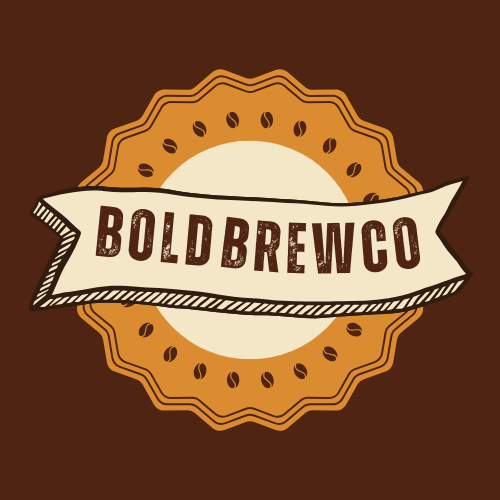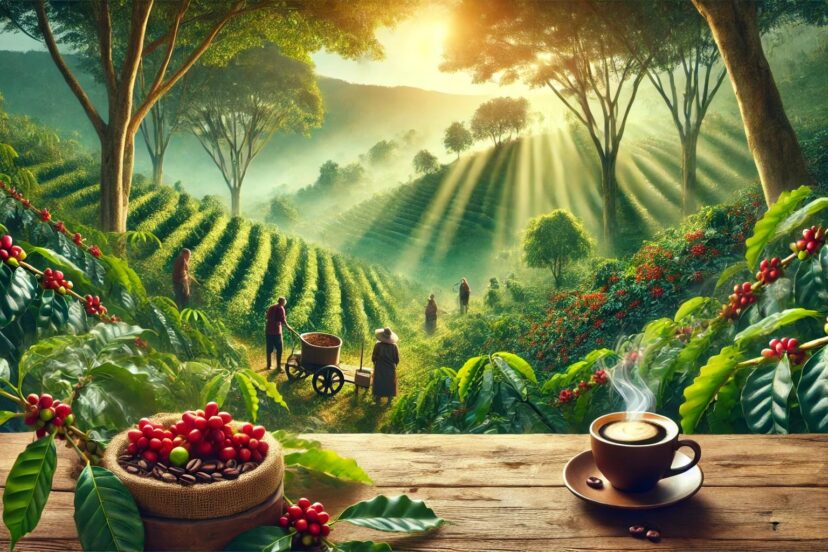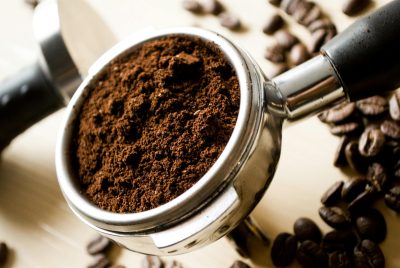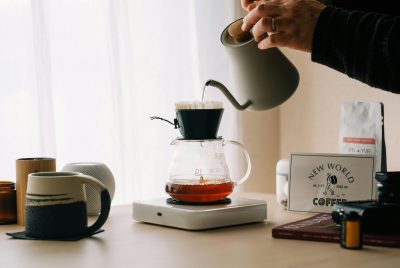The Best Organic Coffee: A Journey to Pure Brews
We may earn a commission for purchases made using our links. Please see our disclosure to learn more.
Are you a coffee lover who’s searching for a more eco-friendly option? Well, I’ve got you covered! Imagine enjoying a hot organic coffee knowing that it’s free from pesticides and synthetic fertilizers. Whether to jumpstart your mornings or keep you awake while working late, you can drink and sip without feeling guilty. Let’s take an aromatic journey and learn about the best organic coffee and how every cup feels like a quiet revolution.
What Is Organic Coffee?
Basically, organic coffee is produced with Mother Nature in mind. Farmers don’t use harmful chemicals here, unlike regular coffee. It is grown naturally, and nourished by rich soil and sunshine. Not a trace of synthetic pesticides, herbicides, or artificial fertilizers! Think of it as the culinary equivalent of walking barefoot through a pristine forest—earthy, grounding, and beautifully untainted. Simply put, it’s a healthier option.
Why Choose Organic Coffee?
If you’re a wellness seeker (just like me), then this might be good for you. Drinking coffee every day is like a routine for me. My day isn’t complete without it. Can you relate??? So, if you have the option to choose a chemical-free beans, then why not? This coffee isn’t just a drink; it’s an experience, a way to savor something pure while doing good for the planet. With every sip, you’re indulging in something that’s healthier, richer, and more intentional—like upgrading from a thrift store sweater to cashmere.
The Taste Difference: Organic vs. Regular Coffee
Now let’s talk about the taste difference… If regular coffee were a hurried weekday dinner, organic coffee would be a slow Sunday feast. That bitter, burnt-toast aftertaste you sometimes notice? Blame it on chemicals, folks. But the best organic coffee? Oh boy, it dances on your palate with a cleaner, more nuanced flavor—like the difference between a factory-produced print and an artist’s original masterpiece.
The Health Benefits of Organic Coffee
Did you know your morning cup could be a quiet warrior for your health? You might not notice it yet, but sooner or later it can affect your health. This coffee brims with antioxidants, those microscopic knights that fend off free radicals and support your immune system. It’s more than caffeine; it’s a tiny, steaming dose of well-being.
This coffee isn’t just a treat for your taste buds; it’s a boon for your health and the planet. Research from the Harvard T.H. Chan School of Public Health shows that regular coffee consumption, rich in antioxidants, may lower the risk of chronic diseases like heart conditions and certain cancers. Beyond personal health, organic coffee farming practices play a vital role in sustainability. A study in the Oxford Research Encyclopedia of Environmental Science highlights how methods like shade-grown coffee preserve biodiversity and reduce chemical usage, fostering healthier ecosystems. Choosing this supports both a healthier you and a greener planet!

Sustainable Farming Practices
When you opt for organic coffee, you’re already like a co-conspirator in sustainability. Organic farmers often employ shade-growing techniques, letting coffee plants thrive under natural canopies. This practice protects habitats, promotes biodiversity, and ensures the earth can breathe a little easier. Let’s try and support sustainable farming practices whenever we can guys.
Certification Matters
Trust, but verify—that’s the golden rule with organic coffee. Look for badges like USDA Organic or Fair Trade on the packaging. These seals are your guarantee that the coffee in your hands has been crafted with integrity, sustainability, and care.
Best Countries for Organic Coffee
The world’s best organic coffee often comes from paradises in disguise: Ethiopia’s misty highlands, Colombia’s lush valleys, Peru’s emerald forests, and Costa Rica’s vibrant farms. These regions provide the ideal mix of climate, soil, and passion, creating beans as rich as the landscapes they’re grown in.
Arabica vs. Robusta: Which Should You Choose?
Arabica beans, with their smooth, almost poetic flavors, are the darlings of organic coffee. Robusta, though less common in the organic scene, offers a robust, earthy punch. It’s like choosing between a delicate ballet and a fiery flamenco—both have their charm; it just depends on your mood.
How to Brew the Perfect Coffee
Brewing coffee isn’t a task; it’s an art. Begin with cold, fresh water. Grind your beans just before brewing to unlock their aromatic potential. Whether you prefer the bold drama of an espresso, the elegance of a pour-over, or the cozy comfort of a French press, let your method match your mood.
The Role of Roast Levels
The roast is the personality of the coffee bean. Light roasts are bright and playful, preserving the bean’s natural flavors. Dark roasts, on the other hand, are smoky storytellers with a bold edge. Choose your roast like you’d choose a soundtrack—light for mornings, dark for introspective nights.
Popular Organic Coffee Brands
Brands that prioritize sustainability and ethical sourcing are the unsung heroes of this story. Seek out those that wear their values on their sleeves—and their labels. They’re the ones ensuring every bean is a reflection of care and commitment. Here’s a curated list of highly-rated coffee brands you can explore:
- Kicking Horse Coffee – Smart Ass Medium Roast
- USDA Organic and Fair Trade Certified.
- Bright, fruity, and smooth flavor profile.
- Death Wish Coffee – World’s Strongest Coffee
- USDA Organic with bold and intense flavors.
- Perfect for those who love a strong kick.
- Java Planet Coffee – Colombian Single Origin
- Certified organic and grown in small batches.
- A rich, balanced taste with caramel and nutty notes.
- Lifeboost Coffee – Dark Roast Single Origin
- Low-acid, non-GMO, and shade-grown.
- Great for sensitive stomachs and rich, bold flavor lovers.
- Equal Exchange Coffee – Breakfast Blend
- Fair Trade and USDA Organic.
- A light, smooth, and well-balanced brew.
Buying Tips for Organic Coffee
Shopping for organic coffee can feel like navigating a maze, but a few pointers can guide you. Opt for beans with clear origin details and certifications. Check roast dates for freshness because stale coffee is no one’s friend.
Storage Tips for Maximum Freshness
Treat your coffee like the treasure it is. Keep it cool, dark, and dry—an airtight container in the pantry is perfect. And resist the fridge or freezer; coffee beans, like people, don’t thrive in damp, cold environments.
Decaf Organic Coffee: Is It Worth It?
For those who love the ritual but not the buzz, decaf organic coffee is a revelation. The best decaf options use natural methods to remove caffeine while keeping the flavor intact—a little miracle in your mug.
Is Organic Coffee Really Worth It?
Let’s discuss the cost of organic coffee… Sure, it may cost a little extra, but isn’t investing in your health and the planet priceless? Think about how clean and healthy it is compared to your instant coffee. Every dollar spent is a vote for a cleaner, kinder world.
Pairing Organic Coffee with Food
What food do you love to pair with coffee??? I love morning coffee paired with muffins. The art of pairing coffee with food is like matching wine to a meal. Organic coffee’s clean, rich flavors shine alongside flaky pastries, velvety dark chocolate, or a hearty brunch spread.
Is it Better for Our Planet?
Without a single doubt, my friend. Organic farming sidesteps harmful chemicals, reduces soil erosion, and promotes water conservation. Each cup is a nod to a healthier planet. Imagine sipping your favorite coffee blend and supporting sustainable farming practices. That’s already a big contribution to Mother Earth!
Supporting Small Farmers
When you choose organic, you’re choosing to uplift small-scale farmers. These are the people who pour their hearts into every bean, cultivating not just coffee but community.
The Future of Organic Coffee
The world is waking up to the charm of organic coffee, and the future looks promising. As demand grows, more farmers are embracing sustainable practices, making this a story with a hopeful, delicious ending.
Conclusion
The best organic coffee is a testament to the good that can come from mindful choices. It’s healthier, tastier, and a little kinder to the world we share. No harmful chemicals and additives to worry about. So, brew that cup, inhale deeply, and savor the taste of something truly extraordinary. Before you go, check out our article on Ninja Specialty Coffee!
FAQs
1. Is organic coffee a healthier choice?
Absolutely! It is free from synthetic chemicals and pesticides, making it a cleaner, healthier option. Plus, it’s packed with antioxidants that help protect your body from pesky free radicals.
2. Does organic coffee taste different?
Yes, and in the best way possible. It has a cleaner, more refined taste. It often carries subtle flavor notes—like chocolate, fruit, or nuts—that can get masked by chemical residues in regular coffee.
3. Is organic coffee more expensive?
Usually, yes. But think of it this way: you’re investing in your health, the environment, and sustainable farming practices. It’s a small price to pay for a brew that’s worth every penny.
4. Can I find organic coffee in decaf?
Of course! Many brands offer decaf options, and they often use natural, chemical-free methods to remove caffeine. So, you can sip on a smooth cup without sacrificing your sleep.
5. How do I know if coffee is truly organic?
Look for certifications like USDA Organic or Fair Trade on the label. These are your assurances that the coffee meets rigorous organic standards and was grown with care for both people and the planet.




